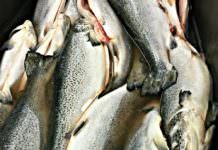 If you are regular reader of my blog, you must know by now that I am fascinated to learn how things work – whether it’s how we get our food or how someone does their job (I am a “recovering” organizational psychologist – my previous profession).
If you are regular reader of my blog, you must know by now that I am fascinated to learn how things work – whether it’s how we get our food or how someone does their job (I am a “recovering” organizational psychologist – my previous profession).
So when I saw this post from The Happy Farm on their Facebook page, I just had to share it. Tom Colbaugh and his wife, Jean, raise poultry (chicken, ducks, geese, turkeys) and sheep on their farm in Kintersville. They are a great source for pastured, all natural eggs, poultry and lamb. They have recently started sharing interesting information on their Facebook page. And now…how to freeze eggs. How cool is this?!
Hens lay the most eggs in the spring and gradually slow down throughout the summer and fall to a natural low during the winter (even with extra hours of daylight added with lights). Contrarily, our egg demand tends to be highest in fall and up through the Holidays. We time the addition of each year’s replacement hens so that the new ladies start laying in late summer when the demand is high and the older hens are slowing down. Some years this works perfectly, other years (such as 2009) it doesn’t work quite so well – often for reasons beyond our ken. But no matter what we do there are bound to be weeks when we sell out before everyone who wants our tasty Happy Farm eggs can get some.
If you have a freezer and would like to insure you always have Happy Farm eggs on hand for baking, scrambling, making quiche, etc. it is quite easy to freeze eggs at home. You can’t, unfortunately, freeze them in their own neat little packages as the shell will almost always crack and the thawed yolk will be thick and gluey (though perfectly edible). But crack them out of their shells and beat them gently and you can freeze whole eggs, just yolks, or just whites wit hvery good results down the road.
Crack eggs into a bowl, separating them if desired, and beat gently to break membranes and blend (avoid adding air bubbles as much as possible).
For whole eggs or yolks add either ½ teaspoon salt (for savory dishes) or 1 tablespoon of sugar (for baking) per cup of liquid to improve the thawed product. Whites are fine frozen plain.
Freeze in the amounts you will use at one time so you can thaw only what you need.
A single large egg = about 3 Tablespoons, which will fit in an ice cube tray compartment. Pop frozen egg cubes into a tightly-sealable container.
2 large eggs = about 1/3 cup of whole egg
3 large eggs = about ½ cup of whole egg
6 large eggs = about 1 cup of whole eggFreeze and store in air-tight containers, allowing space for expansion.
Be sure to mark each container so you know how much is in it, if the egg are salted or sweetened, and when you put it in the deep freeze.
To use thaw in the fridge overnight and be sure to adjust your recipe to account for the added salt or sugar.
Thanks Tom and Jean! See more at the Happy Farm’s Facebook page, and meet them in person at the Doylestown and Wrightstown Farmers’ Markets on Saturday mornings.
Look for Bucks County Taste on Facebook and Twitter!

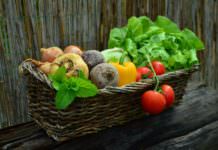

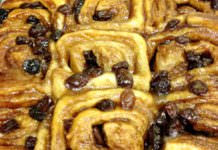


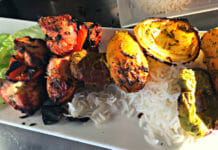

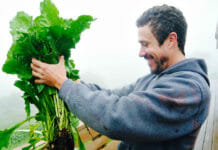
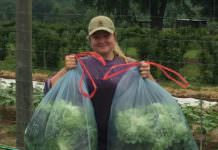
![What we’re reading [Oct 16 2017]](https://www.buckscountytaste.com/wp-content/uploads/2017/10/coffee_macbook_reading_pexels-photo-414630-218x150.jpeg)
